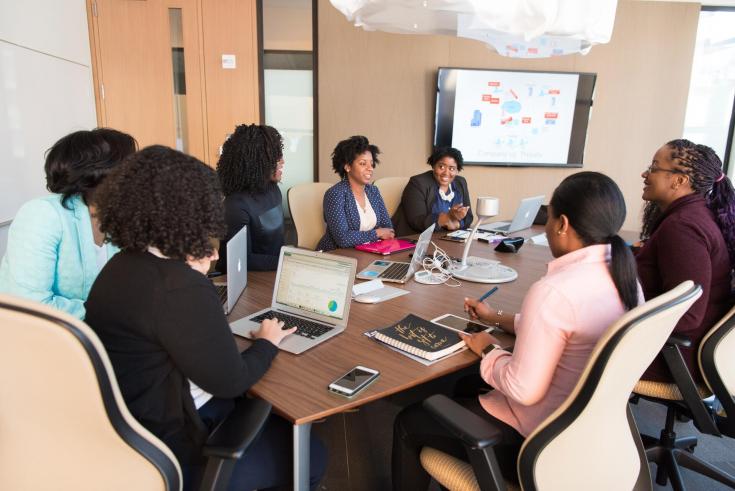Webinar recording: Cross-sector inter-cluster cooperation

On 19 January 2021, the Policy Learning Platform organised a webinar on increasing SME competitiveness through cross-sectoral inter-cluster cooperation.
Innovation and competitiveness are rarely achieved in isolation. Needed competences are normally spread across different sectors, value chains, clusters and geographical borders and therefore collaboration between, and integration of different innovation actors across different sectors and regions is necessary. The aim of the webinar was therefore to further explore the possibilities of cross-sectoral inter-cluster cooperation and look at good practices and experiences from different European regions and projects.
Webinar recording
Webinar agenda overview
Navigate to the discussion topics of interest in the webinar agenda overview below.
00:03:30 Introduction presentation by Thematic Expert of SME competitiveness Rene Tõnnisson to the topic of cross-sectoral inter-cluster cooperation.
00:13:00 Presentation by Agathe Fournier from the CLIPPER project on a success story from Pays de Loire: Inter-cluster cooperation between 6 regional clusters.
00:33:50 Q&A: Could you specify the link between the NEOPALIA cluster and the CLIPPER project? And how has this good project used within the project?
00:36:27 Presentation by Aiga Irmeja from the Latvian IT Cluster (SKILLS+ project) on success story from Latvia: setting up Digital Innovation Hub for cross industry cooperation.
00:50:48 Q&A: How do you stimulate cluster collaboration? How do you manage to bridge the reluctancy and lack of trust to get companies to join?
00:52:30 Presentation by Marek Przeor from the European Commission, DG GROW on why and how the European Commission is supporting cross-sectoral inter-cluster cooperation
Panel discussion
01:11:40 Q&A: How are clusters and RIS3 are connected and can they be mutually beneficial?
01:20:36 Q&A: Could you name one or two key success factors that make this type of inter-cluster cooperation successful?
Key learnings
The following key learnings can be drawn from the presentations and panel discussion of the webinar:
- Leadership, political vision and support, community management and cooperation facilitation are some key factors of success identified by European cluster cooperation projects for ensuring succesfull inter-cluster cooperation.
- Building trust between people, companies and clusters is a long term process but necessary for ensuring successful inter cluster cooperation in longer term.
- Cluster development and supporting inter-cluster cooperation are also important part of RIS3 implementation process and often clusters can be considered as DNA of regional economic development.
- Cluster will continue to play an important role on EU level during the next programming period 2021-2027 by supporting the Resilient, Green and Digital development and transformation of EU and European member states and regions.
